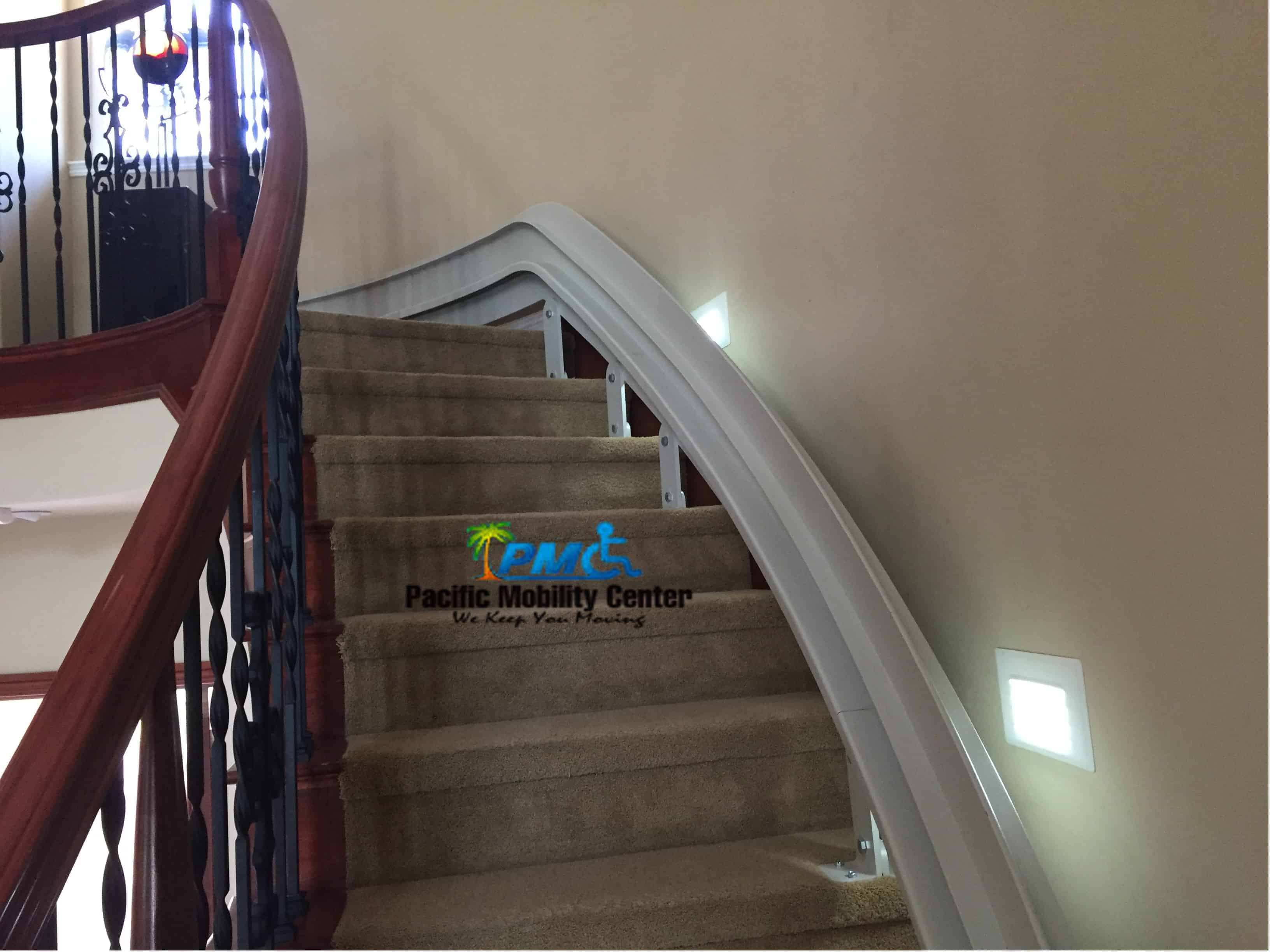Pacific Mobility offers suggestions for five things that make the most impact for accessibility: technology, versatility, quality, availability, and societal stigma.
When you think of accessibility, you likely think about things like ramps and stair-lifts. While this is, in fact, how many with mobility issues live each day, there are some other factors that make a significant impact on a more accessible world. New mobility devices are emerging daily; these advancements are helping individuals with physical impairments maintain their autonomy and improve the quality of their lives.
The five things that make the most impact for accessibility are:
- Accessibility technology
It comes as no surprise that technology plays a big role in the advancement of accessibility devices. In fact, technology is being used to assist a wide-range of consumers in a variety of ways, from driving a car to talking on the telephone. When it comes to adaptive devices, like stair-lifts, modern technology and advancement have come together to create lifts that are discreet and that meld with their environment. These devices provide a smoother ride, more control, and greater options for users- without needing major home renovations to facilitate installation.
- Feasibility and functionality
Feasibility and functionality have also had a dramatic impact on accessibility, overall. What was once not feasible for installation of a lift or adaptive device, is now possible; functions that consumers need were not always available, but greater functions are being innovated every day. Whether you are looking for a very basic lift to ascend steps in your home or you have distinct needs that merit assistive robots, it is now more possible to get what you need for greater access and autonomy.
- Product quality
The key when buying mobility devices is quality; you want to install something that will have some resilience and longevity. The emergence of high-end equipment has made an impact on accessibility as these devices involve less maintenance and repairs than the equipment of yesteryear. Don’t make life more complicated by buying shoddy products from unreliable vendors; talk with someone at Pacific Mobility today to hear more about their high-quality products, designed with the consumer in mind.
- Resource availability
Recent years have seen a rise in the availability of adaptive devices and mobility aids, particularly as the number of individuals living with physical disability increases. Did you know that nearly 60-million people in the US have a physical disability? While this takes a toll on individual relationships and finances, it also has shown a spotlight on the need for expanded health care resources in this country. This lack of availability and resources has historically been a significant barrier to access to health care for many in the US. Fortunately, independent vendors have picked up the slack- and lowered the prices of equipment that once was only available through a hospital, provider, or medical clinic. This does mandate that consumers take care to only purchase their mobility devices and aids from cooperative and collaborative sellers that pay attention to needs, and that promise service after the sale. Also, though you may be tempted, don’t ever buy second-hand medical equipment at thrift stores or yard sales; these devices could be faulty, even dangerous, and could cause more harm than good.
- Ongoing stigma
Sadly, discrimination and stigma still prevent many from fully-accessing the resources that are available to help them. Seniors, over the age of 65, may face the most challenges, between age-related, co-occurring medical conditions and living in under-served communities or municipalities. Individuals with physical limitations continue to fight stereotypes and stigma in the workplace, schools, and even at home, as many are being pushed from independent living situations into more restrictive levels of care.
The upside to this ongoing stigma is the legislation that has been put in place to prevent discrimination against individuals based on a disability. The Americans with Disabilities Act of 1990 subjects those that discriminate to prosecution- and this includes failing to maintain accessibility for anyone with a documented disability. This legislation has opened doors and provided opportunities for individuals with mobility issues that were often overlooked and ignored prior to 1990.
Pacific Mobility has the solutions to increase access and improve lives
Pacific Mobility is a family-owned and operated business that has been serving consumers, caregivers, and providers for over 60 years, and they have become a resource to find the right mobility aids to fit your needs, lifestyle, and home. Wondering what you need? From stair-lifts to door-openers, Pacific Mobility provides professional service, thorough assessment, and customer support, so you are not alone.
Don’t live another day without the mobility aids that can increase independence and improve daily life. While technology, functionality, quality, availability, and overcoming stigma have made an indelible impact on accessibility, you must advocate for what you need. Physical limitations don’t need to control your life; preserve your independence and accessibility with solutions from Pacific Mobility.
President, Husband, Father, Grandfather Graduate of UC Davis- Bio Sci Major- Go Aggies! Jeff has extensive experience in all of Pacific Mobility’s products and services, and specializes in accessibility products as well as stairlifts, ceiling lifts and custom wheel chairs. His hobbies include spending time with family, gardening, mountain biking, exercising and off road motorcycle riding.
24 years as Owner/President of Pacific Mobility Center – selling, installing, and servicing stairlifts, porch lifts, ceiling lifts, pool lifts, handicap ramping, specialty wheelchairs, scooters, power wheel chairs, and other power mobility devices
Certified Environmental Access Consultant since 2008
Licensed General Contractor since 1998
Certified Aging in Place Specialist since 2016
Board Member for Home Access Professionals
Member of Association of Members of the Accessibility Equipment Industry (AEMA)




